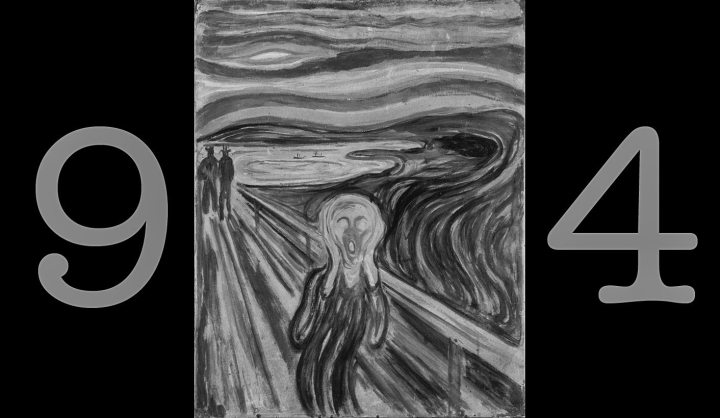Maverick Life, South Africa
Op-Ed: Life Esidimeni Tragedy not an Aberration

While fiscal consolidation and shrinking budgets are likely to stay with us for some time, policy makers need to consider the impact of austerity measures on the most vulnerable in our society, including people living with mental disorders. By Shannon Morgan, Mafoko Phomane, Dr Meba Kanda, Charlene Sunkel, Ingrid Daniels and Dr Richard Vergunst for the RURAL MENTAL HEALTH CAMPAIGN.
The tragedy of the 94-plus people who have died in the Life Esidimeni tragedy is heartbreaking, but sadly a reality we deal with all too often. The Rural Mental Health Campaign (RMHC), an umbrella body of organisations who work with the challenges that have bubbled to the surface following this tragedy, are mourning with the families who lost their loved ones in this unnecessary heartbreak.
We welcome the Health Ombudsman’s report on the “Circumstances surrounding the deaths of Mentally Ill Patients: Gauteng Province” and concur with both the recommendations presented in the report, and the call for the Minister of Health to ensure that this tragedy is not repeated.
These events have done serious damage to the trust of South Africans in their health system, and it is imperative that justice be served and accountability shown in order for this to be restored.
Deinstitutionalisation and bringing mental health services closer to where people live is an emphasis of the National Mental Health Policy Framework and Strategic Plan 2013-2020 (MHPF), but we have all witnessed the devastating effects for patients and their families when this is done poorly and incoherently “94 deaths and still counting”. Sadly the events in Gauteng are only the tip of the iceberg: all over the country, and especially in rural areas, mental health care users have little or no access to the services they need, resulting in the same devastating effects on individuals and families.
The Life Esidimeni tragedy not an aberration: it simply places in the spotlight what is happening everywhere.
Our 2015 report included the testimonies of mental health care users from rural areas who shared the challenges they face in accessing care. The findings showed that rural mental health care services are still largely inadequate, due to the inaccessibility of existing services, budgetary constraints, psychiatric medication shortages, insufficient human resource capacity and a lack of integrated care, as well as stigma and discrimination.
Deinstitutionalisation is key to rights-based mental health care and should not be abandoned. Instead there should be clear guidelines developed to ensure the appropriate placement of people with mental health care needs – some of whom will be able to live as part of their communities, and some of whom will continue to require residential care. The capacity of both community-based services and residential facilities must be strengthened, including those run by NGOs, and clear supervision policies implemented as envisaged in the strategy.
While fiscal consolidation and shrinking budgets are likely to stay with us for some time, policy makers need to consider the impact of austerity measures on the most vulnerable in our society, including people living with mental disorders.
As the RMHC, we strongly support the Health Ombudsman’s recommendation that the “National Minister of Health should request the South African Human Rights Commission (SAHRC) to undertake a systematic and systemic review of human rights compliance and possible violations nationally related to mental health” and we call for this to take place through engagement with mental health care users and their families. According to Jethro, a mental health care user from Kwazulu-Natal, “People tend to disregard a mad person’s opinions on issues of discussions” (RMHC report 2015). We cannot go forward without acknowledging mental health care users as key partners in upscaling mental health care services and this can be realised by actively supporting and resourcing patient advocacy groups.
It is time to start listening and working together so that decisions are made collaboratively and don’t result in gross human rights violations. NGOs, who provide the majority of community-based services for mental health care users, do so with minimal support from government. The Gauteng tragedy has unfortunately placed such NGOs in a bad light, particularly as some of those involved were found to be operating with invalid licences. What this tragedy has proved however (and what we already know) is that there needs to be a partnership between government and NGOs, and NGOs must be acknowledged as key role-players in achieving the goals and objectives of the MHPF. Without this, the Mental Health Strategy will remain nothing more than intentions on paper. DM
Morgan represents Rural Rehab South Africa, Phomane is the Campaign Co-ordinator at the Rural Health Advocacy Project, Kanda is with the Rural Doctors Association of South Africa, Sunkel is with the South African Federation for Mental Health, Daniels with Cape Mental Health and Vergunst with Stellenbosch University’s Psychology Department.
Access the RMHC report here:
The RMHC is a collaboration between five organisations (Rural Rehab South Africa, Rural Health Advocacy Project, Rural Doctors Association of South Africa, South African Federation for Mental Health, and Cape Mental Health) who are advocating for access to mental health care and services in rural areas.















 Become an Insider
Become an Insider